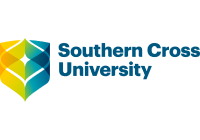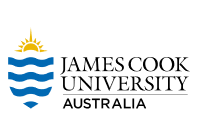Are you considering pursuing an MBA course in Australia? As you embark on this exciting academic journey, one question that might be on your mind is, "How many subjects are in an MBA course?" It's a crucial query, as it helps you gauge the breadth and depth of knowledge you'll acquire during your MBA studies. In this article, we'll explore the subject structure of an MBA course in Australia and provide you with valuable insights from renowned experts in the field.
An MBA course in Australia encompasses a diverse range of subjects designed to equip students with a comprehensive understanding of the business landscape. From finance and marketing to strategic management and entrepreneurship, these subjects enable students to develop the skills necessary to thrive in today's competitive global market. But just how many subjects do you need to conquer to earn your MBA degree?
Typically, an MBA course in Australia consists of around 12 to 16 subjects, varying slightly across different universities and programs. Each subject delves into a specific aspect of business administration, providing in-depth knowledge and practical skills. Core subjects form the foundation of an MBA program, covering essential areas like accounting, economics, organizational behavior, and business ethics. Additionally, students can choose from a range of elective subjects tailored to their career aspirations, such as international business, innovation and technology, or supply chain management.
So, whether you're already enrolled in an MBA program or considering taking the leap, this article will provide you with valuable information to help you navigate the subject landscape of an MBA course in Australia. Stay tuned to discover the exciting subjects that await you, and gain a deeper understanding of the transformative educational experience that lies ahead.
Quick Links To Online MBA Programs
RMIT Online
Master of Business Administration (MBA) Online
- 2.7 years part-time, Reduced duration available
- Jan, Mar, May, July, Aug, Oct
- $4,560 per course, FEE-HELP available
Southern Cross University
Master of Business Administration (MBA) Online
- 2 years part-time
- Jan, Mar, May, July, Aug, Oct
- $2,990 per unit, FEE-HELP available
UTS Online
Master of Business Administration (Online)
- 2 years (minimum), Part-time
- 12 subjects | 7-week study blocks
- $4,250 per subject, FEE-HELP available
James Cook University
Master of Business Administration Global (MBA Online)
- 24 months , Part-time
- $3,700 per subject , FEE-HELP is available
- 12 (One subject per each 7-week study period)
Core Subjects in MBA

A Master of Business Administration (MBA) programme typically includes required and elective coursework. However, the core subjects form the foundation of your business education and are usually mandatory for all students.
Accounting
Accounting is the language used in commercial transactions. You will acquire the knowledge necessary to analyse financial statements, budgeting, and performance management by studying financial and managerial accounting fundamentals. At the same time, you are enrolled in an MBA programme.
Economics
Understanding the operation of markets and the role that firms play within them requires a solid foundation in economics. In this course, you will study both microeconomics and macroeconomics, the former focusing on individual markets and the latter on the economy as a whole.
Finance
The realm of finance is concerned with the administration of one's funds and their investments. You will get the knowledge and skills necessary to make well-informed decisions on behalf of a company or other organisation by taking an MBA course that focuses on corporate finance, financial markets, and investment analysis.
Marketing
The creation, communication, and provision of value to consumers are the primary focuses of marketing as both an art and a science. As part of your MBA courses, you will learn about market research, customer behaviour, and marketing strategy, which will help you understand how to advertise products and services effectively.
Operations Management
The processes and infrastructures are responsible for producing goods, and services are the primary focus of operations management. To prepare you for a job in managing company operations, the classes that you take for your MBA will delve into issues such as supply chain management, quality control, and process improvement.
Organisational Behavior
The study of organisational behaviour delves into the interactions between individuals and groups within businesses. You will get the skills necessary to become a more efficient manager by studying subjects like leadership, motivation, and the dynamics of teams. At the same time, you are enrolled in an MBA programme.
Strategy
Regarding business, strategy is about how companies build and maintain a competitive advantage. You will learn about strategic planning, competitive analysis, and corporate strategy in your MBA programme, which will equip you with the abilities necessary to navigate a corporation through the always-shifting terrain of the market.
MBA Subjects

MBA Subjects: Semester 1
You will get a foundational knowledge of Business Administration and Management through this first semester of study, which serves as an introduction to the subject. The following topics are covered in the first semester of the MBA programme:
- Organisational Behaviour
It is concerned with investigating actions and performances inside an organisation that individuals and groups carry out. This field of research investigates human behaviour in the workplace context to establish how it affects aspects such as performance, job structure, motivation, communication, and leadership, among other things.
- Quantitative Methods
The quantitative methods emphasise objective measurements and statistical and mathematical analyses of data obtained through polls, surveys, or by modifying existing records and data using computing tools.
- Managerial Economics
It is a field of study that brings together the fields of economics and management practices. One of the most well-liked areas of study for MBA students is a course whose primary purpose is to bridge the gap between the "problem of logic" and the "problem of policy" by utilising effective tools and strategies.
- Marketing Management
It is a topic in organisational management that focuses on the practical application of marketing orientation and has its primary audience be managers of organisations. Students in the Marketing Management course are instructed on various strategies and procedures that can be used to monitor an organisation's market resources and activities.
MBA Subjects: Semester 2
In most cases, integrating various techniques and resources at the management level is the primary topic of study during this semester. In addition, this semester's curriculum includes, in addition to the fundamental MBA disciplines, a variety of different practical teaching programmes.
- Management Accounting
The topic covers a variety of approaches and procedures that can be utilised to collect, organise, record, and report financial data from various departments and divisions within an organisation. After the data has been collected, it is examined and analysed for funding and budget distribution purposes.
- Management Science
Management Science studies statistical methodologies, including linear programming and simulation, to analyse and resolve issues that arise inside organisations. It is a vast field of study that draws from various academic disciplines and focuses on problem-solving and decision-making while maintaining close ties to management, economics, and business.
- Financial Management
A primary focus of financial management is the planning, organising, directing, executing, and managing various financial activities. These activities include fund acquisition and utilisation. Capital Budgeting, Capital Structure, and Working Capital Management are some of the topics covered in one of the most significant subjects an MBA student can take.
MBA Subjects: Semester 3
The classes you'll be taking this semester will focus on the more commercial and business-oriented aspects of the area of expertise you've chosen to pursue. In addition, beginning with this term and continuing beyond, you will have the opportunity to select several electives to round out your education. The following is a list of some of the more important MBA subjects that will be covered in the third semester:
- Market Research
Research in the market is an organised attempt to obtain knowledge about a particular market and the people that make up that market. It is one of the essential aspects of any viable business strategy. This area of study covers a wide range of topics, some of which are Product Research, Advertising Testing, Satisfaction and Loyalty Analyses, Brand Awareness Research, Pricing Research, and many more.
- Strategic Analyses
The process of researching the commercial setting in which an organisation conducts its operations is known as strategic analysis. A strategic plan is necessary when making sound decisions and ensuring an organisation runs efficiently.
- Legal Environment of Business
The government's stance towards the private industry is a component of this topic. Students seeking an MBA learn about the industry's historical evolution, current trends, legislation, and other topics such as taxation control, competition, market freedom, and more.
MBA Subjects: Semester 4
The four semesters of the various types of MBA programmes emphasise project studies and elective coursework. While in the former option, you are required to complete an internship as part of your MBA education, in the project study or dissertation option, you have more leeway in selecting the MBA courses you take according to your area of interest and specialisation.
Elective Subjects in MBA
In addition to providing instruction in fundamental topics, MBA programmes typically provide students with a vast selection of optional classes from which they can choose to develop a particular area of expertise. The following are examples of well-liked elective topics:
Human Resource Management
"human resource management" (HRM) refers to recruiting new workers, fostering their professional growth, and keeping existing staff members. If you decide to major in human resource management, some topics you will study include diversity and inclusion, talent management, and employee engagement.
Supply Chain Management
Supply chain management, often known as SCM, ensures that organisations can exchange their goods, services, and information effectively and efficiently. Your preparation for a career in the management of complex supply chains will be enhanced by taking SCM elective courses that focus on areas such as logistics, inventory management, and procurement.
Information Technology Management
The field of information technology management (ITM) investigates how business and technology interact with one another. If you decide to study ITM, you will be prepared to make educated judgements on applying technology within a corporate setting by gaining knowledge in data analytics, project management, and information technology strategy.
International Business
"international business" (IB) refers to analysing the difficulties and potential rewards of conducting business globally. You will be prepared to tackle the intricacies of conducting business across borders by taking elective courses in the International Baccalaureate programme that cover themes like cross-cultural management, international trade, and global strategy.
Entrepreneurship
The act of beginning and expanding new firms is at the heart of what is meant by the term "entrepreneurship." If you decide to study entrepreneurship, some topics you will be exposed to include opportunity recognition, company planning, and venture finance. These topics will give you the knowledge and skills to bring your business ideas to fruition.
Healthcare Management
The field of healthcare management examines the one-of-a-kind obstacles that arise when directing organisations in the healthcare industry. You can prepare for a job in this area by taking elective classes in healthcare administration. These classes will cover health policy, healthcare economics, and health information systems.
Real Estate Management
The numerous facets of the property business, such as development, investment, and management, are the primary areas of concentration in real estate management. If you decide to pursue a degree in real estate management, some topics that will be covered include property valuation, real estate finance, and property law. These subjects will prepare you for a job in the ever-evolving real estate industry.
Sustainability and Environmental Management
The study of sustainability as well as environmental management, investigates the various means by which companies might conduct their operations in an ethically responsible manner towards the environment. The elective courses in this field will cover themes such as corporate social responsibility, sustainable operations, and environmental policy. These topics will help you establish methods for businesses to minimise the impact that they have on the environment.
Customising Your MBA Experience
You can personalise your education to better align with your interests and aspirations for your professional life, thanks to the extensive selection of elective topics offered in MBA programmes. As a result, you can construct a unique skill set that distinguishes you in the job market and prepares you for the desired career path by carefully considering the electives you choose to pursue.
On successful completion of Master of Business Administration Global, graduates will be able to:
- Demonstrate an understanding and awareness of modern advancements in one or more business disciplines by integrating and applying an advanced body of theoretical and technical knowledge.
- Obtain detailed information, concepts, and theories from various sources, then retrieve, analyse, synthesise, and evaluate this material.
- When planning and carrying out commercial operations, utilise a variety of approaches, strategies, and instruments.
- Using business analysis, statistics, and digital technology abilities, organise, evaluate, and analyse complex business data to make educated decisions.
- Demonstrate and deliver advanced communication abilities to various audiences through oral and written English language skills and digital tools.
- Determine, examine, and develop potential solutions to challenges in global and tropical settings.
- Using forward-thinking and environmentally responsible business practices, you can construct enterprises and communities that are efficient, robust, and welcoming to all.
- Maintain your sense of independent ethical judgement and governance across several different corporate circumstances.
- To identify and manage professional learning requirements and performance, alone and in partnership with others, reflect on the skills, information, and attitudes you now possess.
- Plan and carry out a significant research-based project, capstone experience, or piece of scholarship using your knowledge of research principles, methods, strategies, and tools.
Why an MBA Global with James Cook University?
100% online & part-time
Fast-track your career with flexible study so you can balance your life. Study one subject at a time and complete your degree in as little as two years part-time.
Three qualifications in 1
Build towards your master's degree and gain a Graduate Certificate and Graduate Diploma in Business Administration.
Entry without a Bachelor's degree is available.
Leverage your relevant work experience to gain entry into the course without a Bachelor's degree.
Conclusion
In conclusion, pursuing an MBA course in Australia offers a wealth of opportunities for individuals seeking to enhance their business acumen and open doors to lucrative career prospects. With a wide range of subjects and specializations to choose from, MBA students can tailor their education to suit their interests and professional goals.
The Australian MBA curriculum typically encompasses various subjects that provide a comprehensive understanding of key business functions. From finance and marketing to strategy and leadership, students gain a well-rounded knowledge base that prepares them to navigate the complexities of the corporate world.
So, how many subjects are usually included in an MBA course in Australia? Well, the exact number may vary depending on the institution and program. However, on average, an MBA course in Australia consists of approximately 12-16 core subjects, which form the foundation of business education. These core subjects cover essential areas such as accounting, economics, organizational behavior, and operations management.
Moreover, students often have the opportunity to choose elective subjects based on their interests and career aspirations. These elective subjects allow students to specialize in areas like finance, marketing, entrepreneurship, or international business, among others. By selecting electives, students can tailor their MBA experience to align with their specific career goals and deepen their expertise in a particular field.
How many subjects would you like to see in an MBA course? Feel free to share your thoughts or any questions you may have about pursuing an MBA in Australia.
Content Summary
- Are you considering pursuing an MBA course in Australia?
- As you embark on this exciting academic journey, one question that might be on your mind is, "How many subjects are in an MBA course?"
- An MBA course in Australia encompasses a diverse range of subjects designed to equip students with a comprehensive understanding of the business landscape.
- From finance and marketing to strategic management and entrepreneurship, these subjects enable students to develop the skills necessary to thrive in today's competitive global market.
- But just how many subjects do you need to conquer to earn your MBA degree?
- Typically, an MBA course in Australia consists of around 12 to 16 subjects, varying slightly across different universities and programs.
- Each subject delves into a specific aspect of business administration, providing in-depth knowledge and practical skills.
- Core subjects form the foundation of an MBA program, covering essential areas like accounting, economics, organizational behavior, and business ethics.
- Additionally, students can choose from a range of elective subjects tailored to their career aspirations, such as international business, innovation and technology, or supply chain management.
- So, whether you're already enrolled in an MBA program or considering taking the leap, this article will provide you with valuable information to help you navigate the subject landscape of an MBA course in Australia.
- Stay tuned to discover the exciting subjects that await you, and gain a deeper understanding of the transformative educational experience that lies ahead.
- Core Subjects in MBA A Master of Business Administration (MBA) programme typically includes required and elective coursework.
- However, the core subjects form the foundation of your business education and are usually mandatory for all students.
- Accounting is the language used in commercial transactions.
- You will acquire the knowledge necessary to analyse financial statements, budgeting, and performance management by studying financial and managerial accounting fundamentals.
- At the same time, you are enrolled in an MBA programme.
- Understanding the operation of markets and the role that firms play within them requires a solid foundation in economics.
- In this course, you will study both microeconomics and macroeconomics, the former focusing on individual markets and the latter on the economy as a whole.
- The realm of finance is concerned with the administration of one's funds and their investments.
- You will get the knowledge and skills necessary to make well-informed decisions on behalf of a company or other organisation by taking an MBA course that focuses on corporate finance, financial markets, and investment analysis.
- The creation, communication, and provision of value to consumers are the primary focuses of marketing as both an art and a science.
- As part of your MBA courses, you will learn about market research, customer behaviour, and marketing strategy, which will help you understand how to advertise products and services effectively.
- The processes and infrastructures are responsible for producing goods, and services are the primary focus of operations management.
- To prepare you for a job in managing company operations, the classes that you take for your MBA will delve into issues such as supply chain management, quality control, and process improvement.
- The study of organisational behaviour delves into the interactions between individuals and groups within businesses.
- You will get the skills necessary to become a more efficient manager by studying subjects like leadership, motivation, and the dynamics of teams.
FAQs About MBA Course
In Australia, the number of subjects in an MBA course can vary depending on the university and the program structure. However, on average, an MBA course in Australia consists of approximately 12 to 16 subjects.
MBA programs in Australia usually cover a range of core subjects that provide a solid foundation in business management. These subjects may include areas such as finance, marketing, accounting, organizational behavior, strategic management, operations management, and business ethics.
Yes, most MBA programs in Australia offer elective subjects that allow students to tailor their studies to their specific interests and career goals. These electives can vary across institutions but often include areas such as entrepreneurship, international business, innovation, leadership, and project management.
The duration of an MBA course in Australia can vary depending on whether you choose to study full-time or part-time. For full-time students, the program typically takes around 1.5 to 2 years to complete, while part-time students may take anywhere from 2 to 4 years, depending on their course load.
Many Australian universities allow students to transfer credits from previous relevant studies, which can help shorten the duration of the MBA course. However, the amount of credit transfer accepted varies between institutions, and it is typically subject to assessment by the university's academic department or the specific MBA program coordinator. It's best to contact the university directly to inquire about their credit transfer policies.




